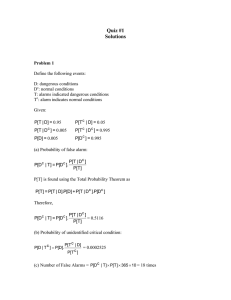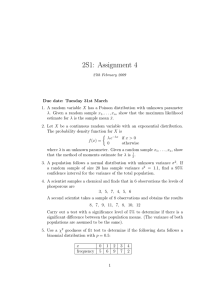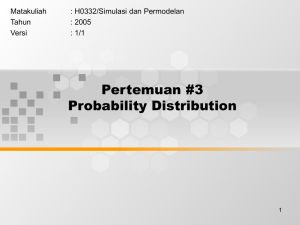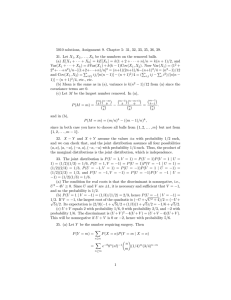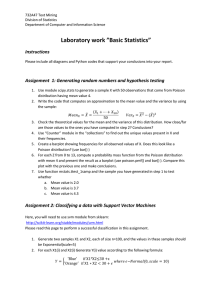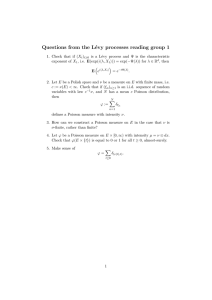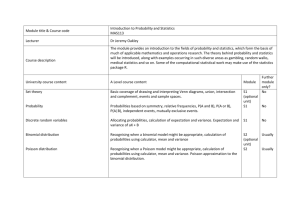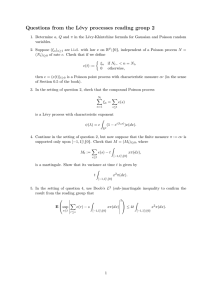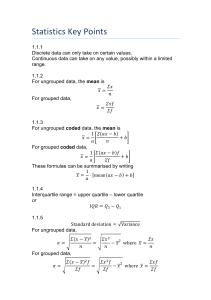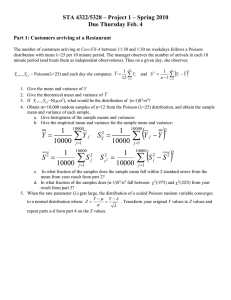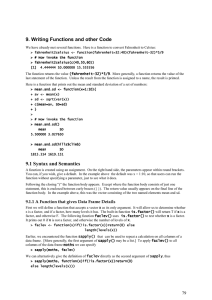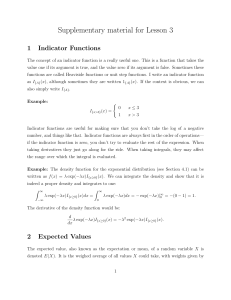Quiz #1 1.5 hours - open books and notes
advertisement
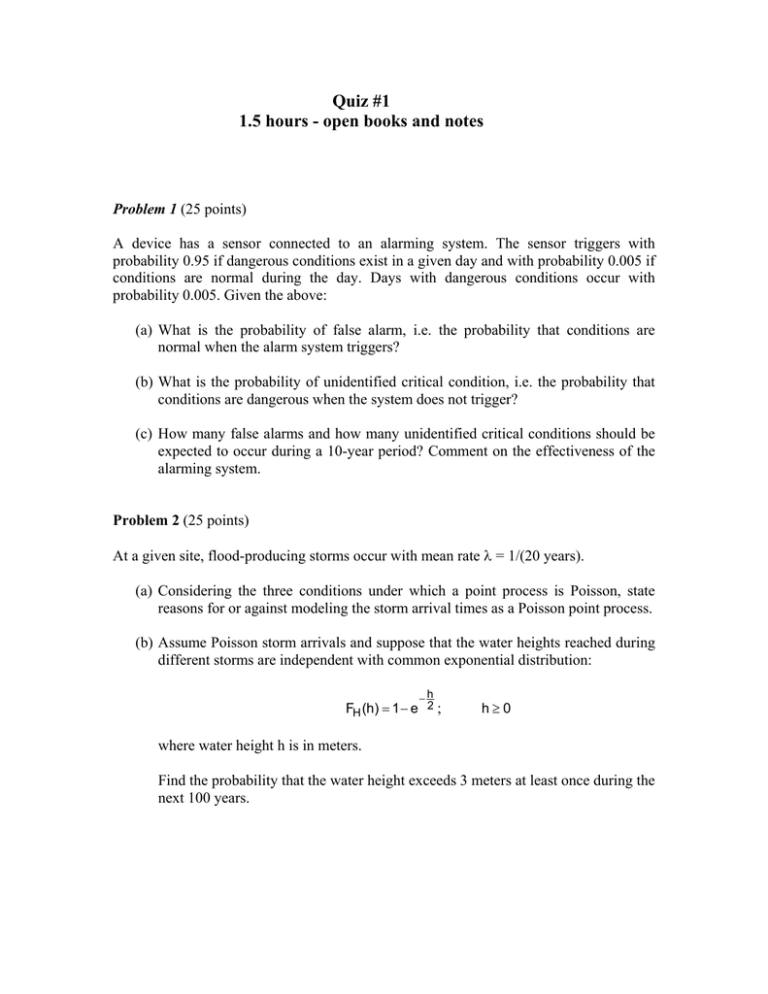
Quiz #1 1.5 hours - open books and notes Problem 1 (25 points) A device has a sensor connected to an alarming system. The sensor triggers with probability 0.95 if dangerous conditions exist in a given day and with probability 0.005 if conditions are normal during the day. Days with dangerous conditions occur with probability 0.005. Given the above: (a) What is the probability of false alarm, i.e. the probability that conditions are normal when the alarm system triggers? (b) What is the probability of unidentified critical condition, i.e. the probability that conditions are dangerous when the system does not trigger? (c) How many false alarms and how many unidentified critical conditions should be expected to occur during a 10-year period? Comment on the effectiveness of the alarming system. Problem 2 (25 points) At a given site, flood-producing storms occur with mean rate λ = 1/(20 years). (a) Considering the three conditions under which a point process is Poisson, state reasons for or against modeling the storm arrival times as a Poisson point process. (b) Assume Poisson storm arrivals and suppose that the water heights reached during different storms are independent with common exponential distribution: −h FH (h) = 1− e 2 ; h≥0 where water height h is in meters. Find the probability that the water height exceeds 3 meters at least once during the next 100 years. Problem 3 (25 points) ⎡X ⎤ The random vector X = ⎢ 1 ⎥ has uniform distribution inside the unit disc. This means ⎣X2 ⎦ that its joint probability density function is: X2 1 ⎧1 ⎪ , fX1,X 2 (x1,x 2 ) = ⎨ π ⎪⎩0, for x 21 + x 22 ≤ 1 otherwise -1 1 X1 -1 (a) Are X1 and X 2 independent? Justify your answer. (b) Find the marginal probability density function of X1 . Problem 4 (25 points) Let X1 and X 2 be independent and identically distributed random variables with common mean value m and common variance σ 2 . (a) Find the mean value and variance of Y1 = X1 + X 2 (b) Find the mean value and variance of Y2 = 2 X1 (c) Are the variances of Y1 and Y2 the same? If not, give an intuitive explanation for the difference. (d) Find the covariance between Y1 and Y2
